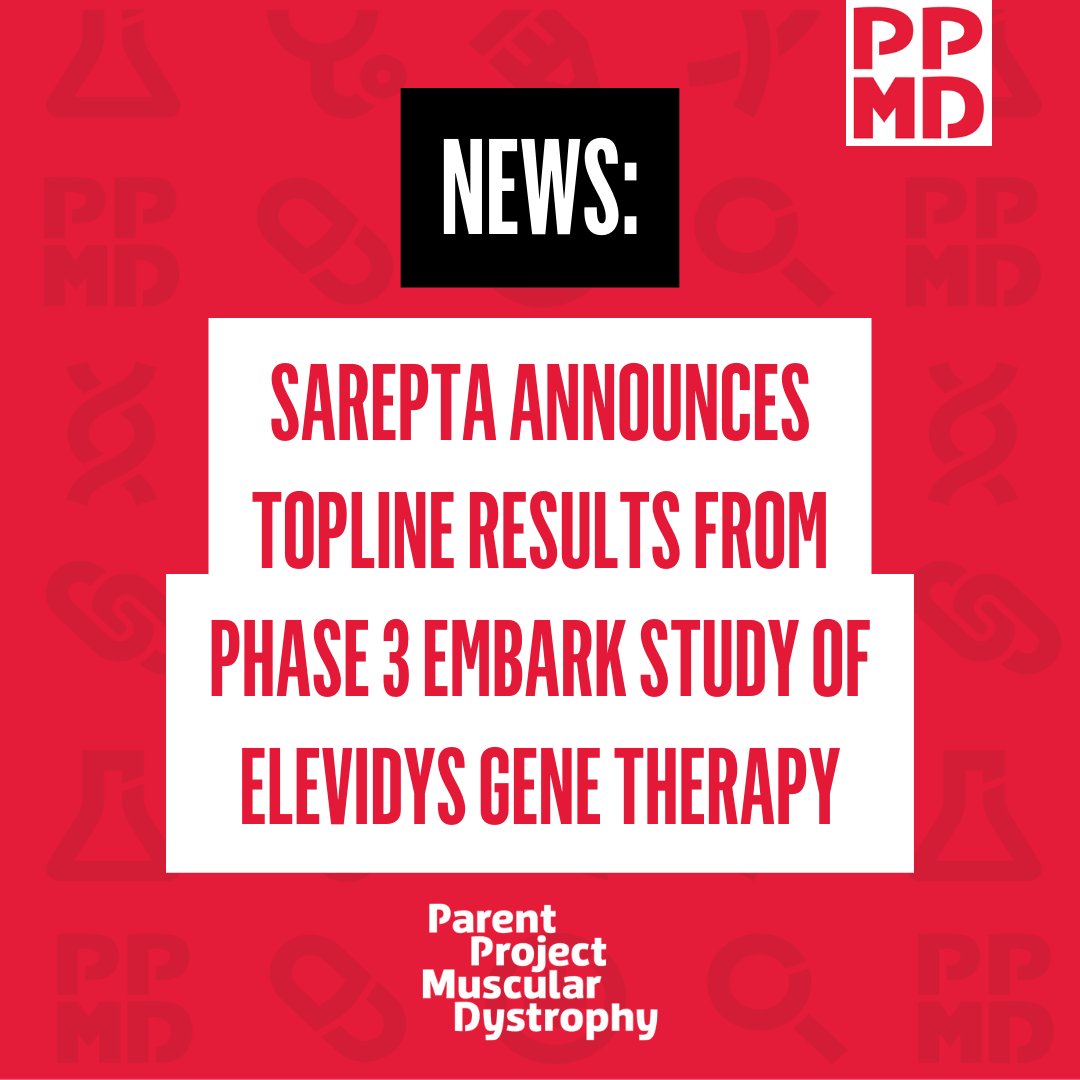
Sarepta Therapeutics has announced Phase 3 topline results of their EMBARK study with ELEVIDYS, a micro-dystrophin gene therapy product currently approved for patients aged 4-5 living with Duchenne.
Sarepta shares that while EMBARK did not meet its primary outcome of change from baseline in North Star Ambulatory Assessment (NSAA) Total Score at Week 52, all key secondary outcomes did show statistically significance in favor of treatment, with no new safety signals. Sarepta has shared these topline results with FDA, who have expressed their willingness to review the data. The company now intends to request an FDA label expansion to all age groups based on these results.
On June 22, ELEVIDYS was granted accelerated approval in children aged 4-5 with Duchenne based on the expression of micro-dystrophin protein as a surrogate marker that was reasonably likely to predict benefit in that population.
It’s important to note that these newly shared results are preliminary topline data, with more in-depth review and analysis yet to come. We are encouraged that Sarepta will submit this data to pursue a more expansive label as we eagerly await the comprehensive study findings.
As a community, we understand the importance of assessing the totality of data and the cumulative impact of dystrophin protein expression in understanding the impact of gene therapy for individuals with Duchenne. We hope that the FDA places a primary focus on this critical aspect and also on the inclusion of real-world evidence into its considerations, and we reinforce our shared commitment to advocate for a broader label of ELEVIDYS.
PPMD has requested Sarepta join us for a community webinar to discuss these latest updates. We’ll keep you updated as soon as we have more information.
For additional details, you can read Sarepta’s community letter here, which also provides an update on the ongoing ENVISION and ENDEAVOR studies.



 by: Parent Project Muscular Dystrophy
by: Parent Project Muscular Dystrophy

